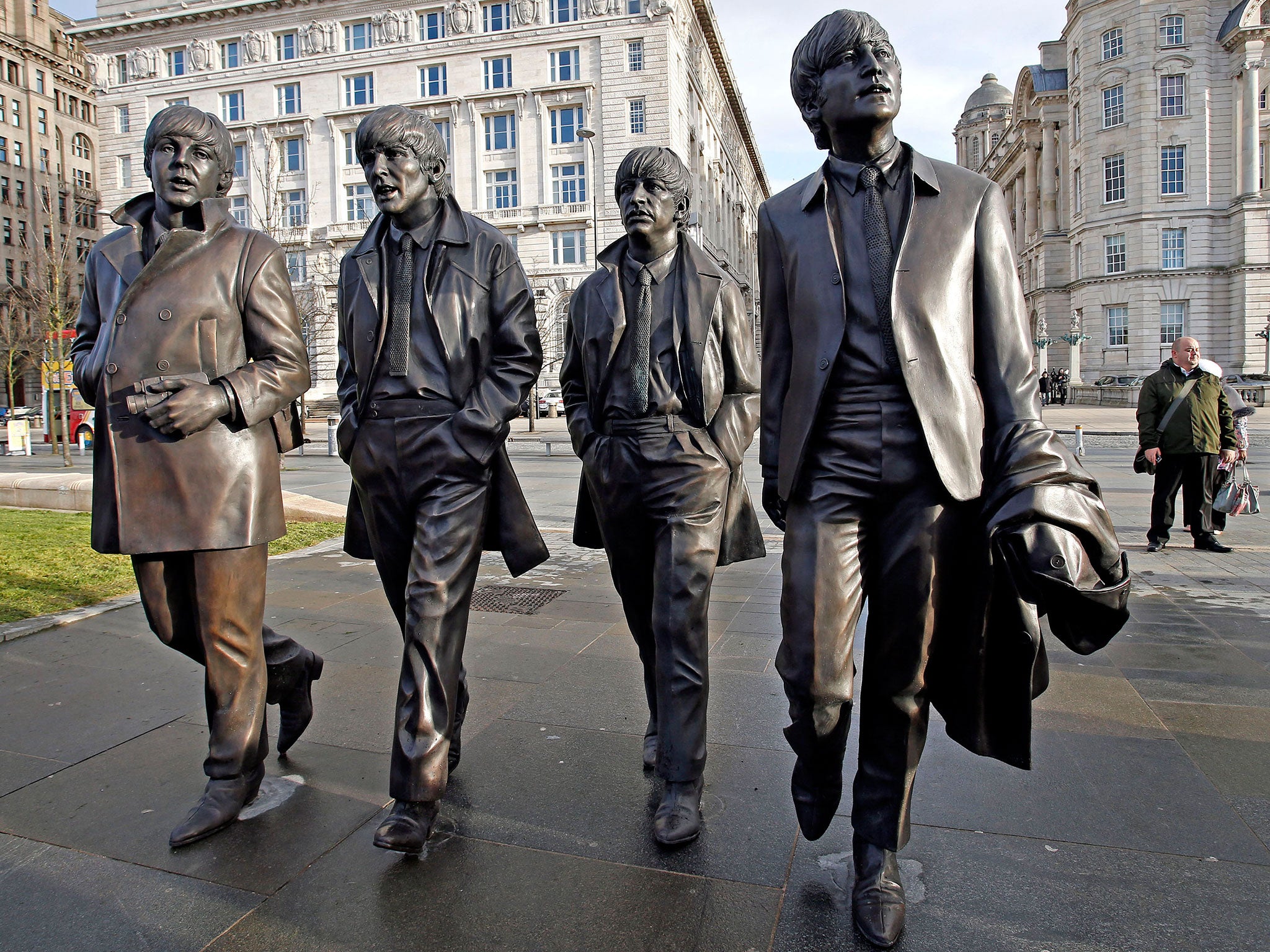Beatles legacy brings more than £89m to Liverpool's economy each year
New report finds the group's legacy is supporting more than 2,300 jobs

“Money”, the Beatles sang in 1963, was what they wanted.
Now, 53 years later, and 46 years after the group split in 1970, their home town of Liverpool is raking in more and more hard cash on the back of the Fab Four.
The group’s legacy is worth £81.9m each year to Liverpool’s economy – a figure likely to continue rising – and is supporting more than 2,300 jobs, according to the first report into the burgeoning Beatles tourist industry.
The report, commissioned by Liverpool City Council, represents the first-ever study of the contemporary value of The Beatles and links earlier academic work with economic data and interviews with key people in the city. It is part of a bid by Liverpool to work towards preserving the legacy of The Beatles, whose songs including “Penny Lane” and “Strawberry Fields Forever” often make reference to their home city.
The report warns, however, that the city’s reputation could be at risk if fans are not provided with sufficient services and attractions when they arrive to seek out The Beatles heritage.
It shows that The Beatles-related economy is growing by up to 15 per cent a year and that there remains “significant” growth potential for the future, including the planned relocation of the British Music Experience to Liverpool and the potential redevelopment of Strawberry Field, where John Lennon played as a child.
But it says the city could improve and better manage public spaces associated with the group, and the key challenge is to “curate” and maintain the authenticity of The Beatles heritage. One of the key recommendations is the setting up of a “Beatles Legacy” group that will explore new ways to develop the band’s legacy.
Professor Simeon Yates from the Liverpool-based Institute of Cultural Capital, who was lead author of the report, said: “In all the interviews we conducted as part of the study, there was a strong belief that the city would go on attracting visitors through its Beatles connection long into the future.
“However, underpinning the economic impact and cultural value of The Beatles heritage is a positive experience for fans, visitors and citizens and the city needs to maintain standards in its efforts to promote this legacy.
“There is a risk to the city’s reputation if it does not ensure that the quality of services, attractions and products are maintained by all those who come into contact with visitors wanting to explore and access the heritage of The Beatles.”
The study was carried out by Liverpool John Moores University and the University of Liverpool through the Institute of Cultural Capital, European Institute for Urban Affairs and the Institute of Popular Music.
The growing popularity of The Beatles among younger British music fans and in countries as far afield as Brazil and China are also helping to fuel the tourism boom.
Dr Mike Jones, from the University of Liverpool’s Institute of Popular Music, said: “We need to convey the core point that Liverpool was not just the birthplace of The Beatles, it was also their cradle. What they learned as Liverpudlians they took into the world.
“The self-confidence and openness to cultural influences remains a vibrant and distinctive aspect of the life of the city. The still-fresh music of The Beatles reminds us who we are and who we could become.”
Join our commenting forum
Join thought-provoking conversations, follow other Independent readers and see their replies
Comments